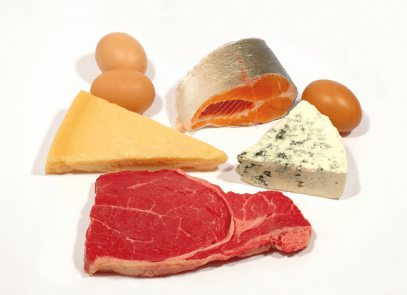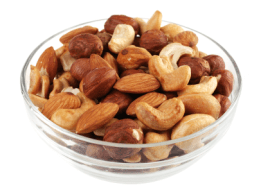Protein for Weight Loss
Ignite Your Fat-Burning Potential with the Power of Protein
Over the last few decades, protein for weight loss has become a prevalent topic. Consuming adequate protein is essential for a healthy weight loss program.
Achieving the right balance
Your body needs an adequate amount of protein daily for healthy weight management and peak physical performance.
For the average, generally healthy adult, about 0.8 grams of protein per kilogram of body mass is enough to cover basic daily requirements. However, keep in mind that our protein needs can go up if:
- We are trying to lose weight because protein helps keep us feeling full longer and is needed to support our fat-burning lean muscle tissue.
- We are more active, frequently training with intensity or having a physically demanding job.
- We are sick or recovering from an injury.
Why is protein essential for fat loss and weight management?
Protein helps you to manage your weight in several ways:
Increased satiety
Protein takes longer to digest compared to carbohydrates and fats, which helps you feel fuller for longer. This can reduce cravings and prevent overeating, ultimately leading to weight loss.
Boosted metabolism
Protein has a higher thermic effect of food (TEF) compared to carbohydrates and fats. This means that your body burns more calories during the digestion and absorption of protein. Increasing your protein intake can slightly increase your metabolic rate, which can aid in weight loss.
Preserved muscle mass
When losing weight, preserving muscle mass is essential as it contributes to a higher metabolic rate. Protein is crucial for muscle repair and growth, and by consuming adequate protein, you can help maintain your muscle mass while losing fat.
Reduced muscle loss during calorie restriction
When following a calorie-restricted diet for weight loss, there is a risk of losing muscle mass. However, consuming enough protein can help minimise muscle loss and promote fat loss instead.
Increased energy expenditure
Protein has a higher thermogenic effect, meaning it requires more energy to digest and absorb compared to other macronutrients. This increased energy expenditure can contribute to weight loss.
Fewer calories than fat
Protein has less than half the amount of calories per gram as dietary fat.
Sources of protein for weight loss
As we know, protein comes from animal and plant foods. Below are good sources of protein for weight loss that can be part of a healthy weight loss program.
Eggs
Eggs are a great source of protein and contain various vitamins and minerals.

Lean meats
Whenever possible, choose organic, grass-fed or free-range lean cuts of meat like chicken, turkey, beef, lamb or pork tenderloin.
Dairy Products
Choose organic or biodynamic dairy products like milk, cheese and yogurt, which are good protein sources whenever possible.
Seafood
All types of fish, lobster, mussels, oysters, prawns (shrimp) and scallops are excellent protein sources and good fats.
Plants
Complex carbohydrates like vegetables, legumes, nuts, and whole grains provide protein, good fats, and plenty of fibre and other nutrients.
Many consider soy a perfect protein and has the added benefits of fibre. Make sure to choose non-GMO, organic and fermented soy foods.
Seeds like quinoa, which some people use as a rice substitute, are another good protein source.
Having both protein and fibre in one food source is a great bonus for fat loss. The combination of both protein and fibre really helps to control the appetite.


Nuts
Nuts can be a good source of protein. They are also a source of good fats, which are high in calories. The good thing about them is that you only need a few to satisfy you.
They can be a good snack between meals as part of a healthy weight loss program to help manage hunger.
For more information on protein for weight loss, click to view an article from Precision Nutrition - ‘How much protein should I eat?’ Choose the right amount for fat loss, muscle, and health.